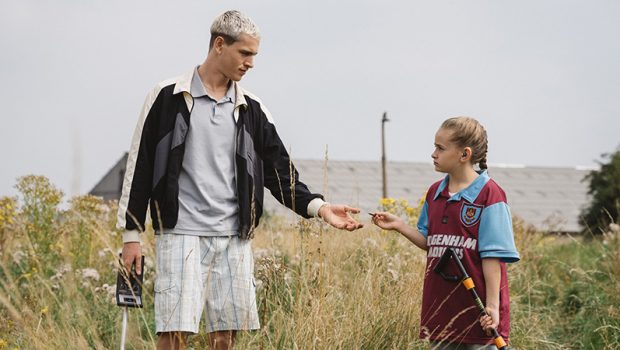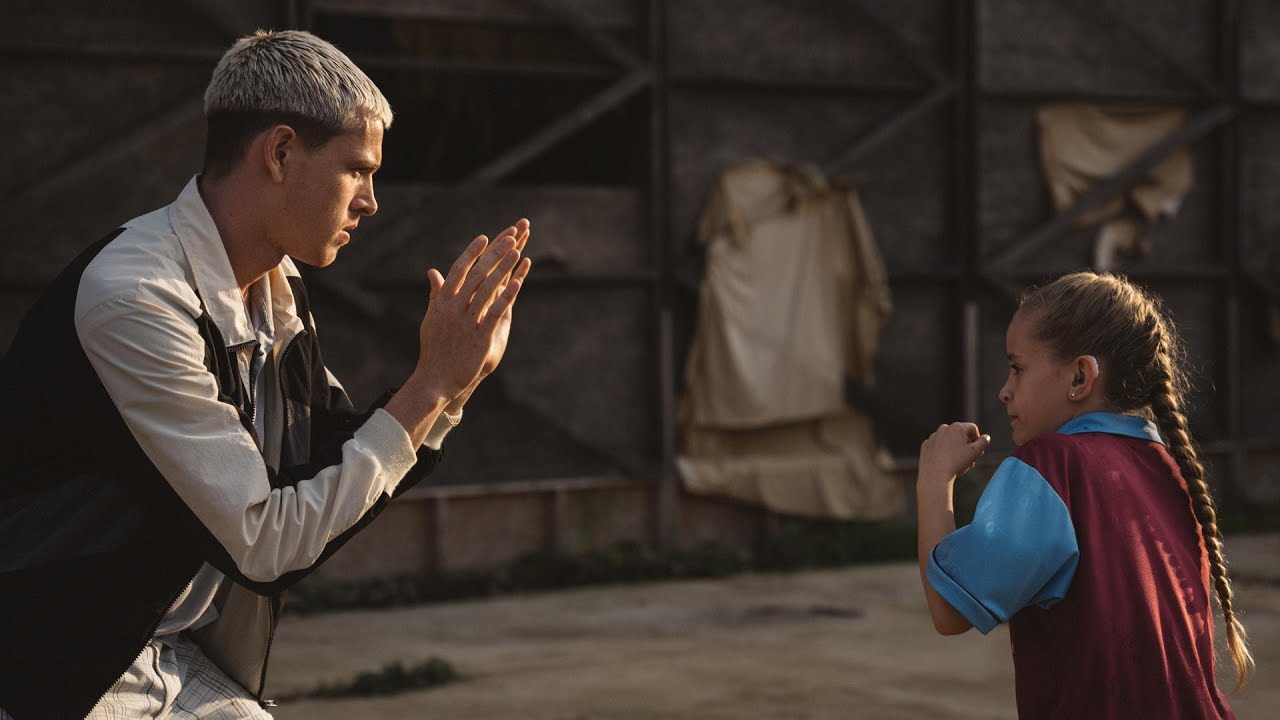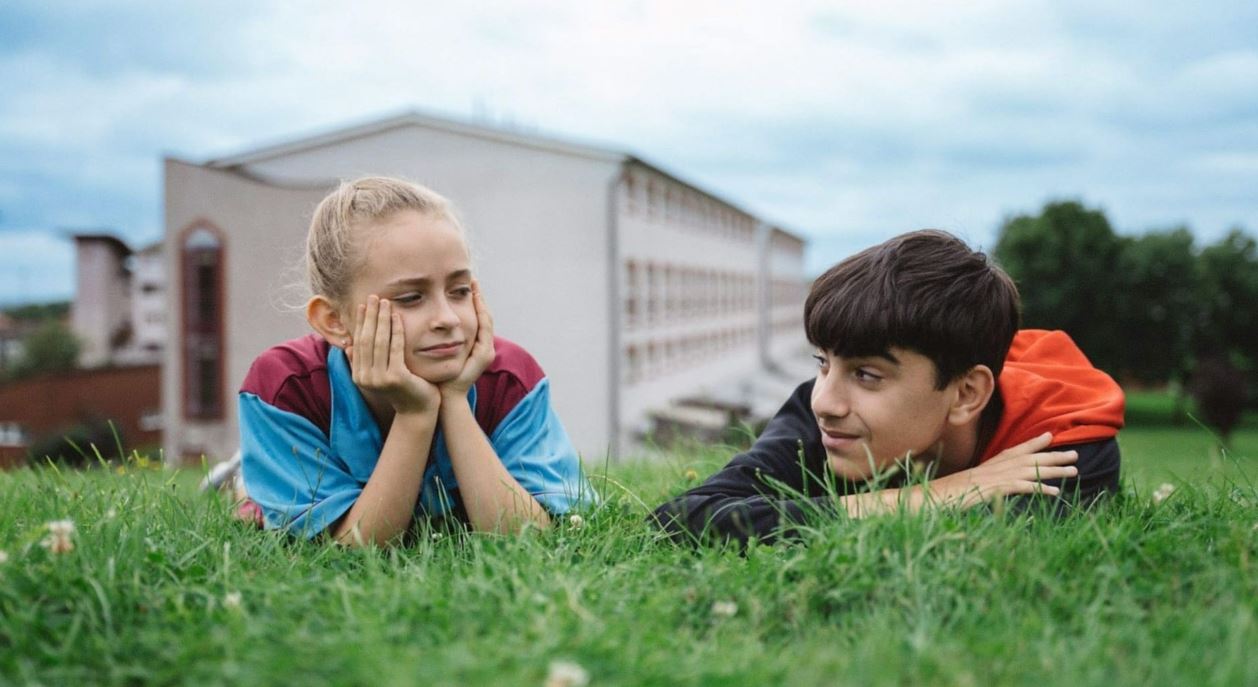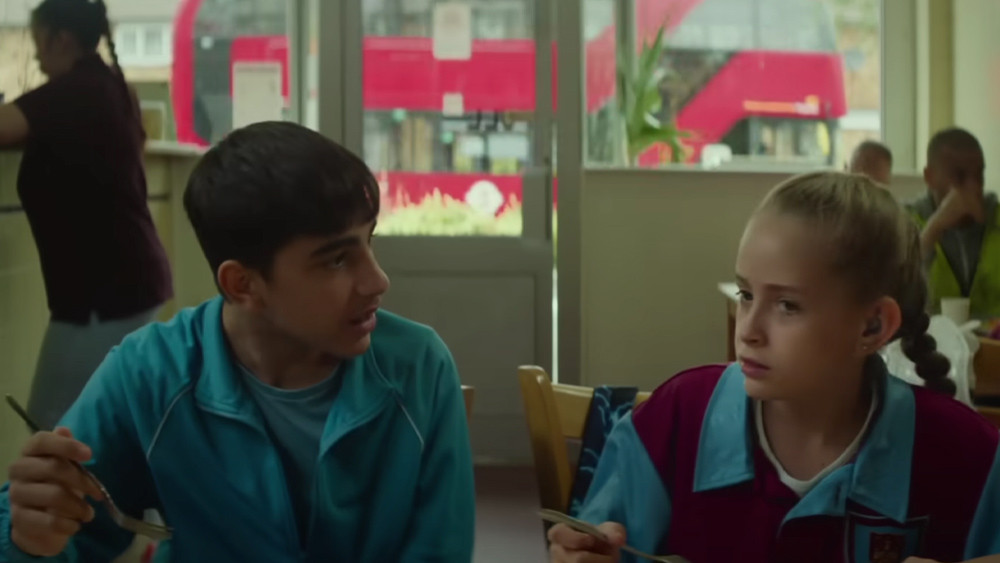Scrapper – Film Review
Reviewed by Damien Straker on the 13th of September 2023
Madman Entertainment presents a film by Charlotte Regan
Written by Charlotte Regan
Produced by Theo Barrowclough
Starring Lola Campbell, Harris Dickinson, and Alin Uzun
Cinematography Molly Manning Walker
Edited by Matteo Bini and Billy Sneddon
Music by Patrick Jonsson
Rating: PG
Running Time: 84 minutes
Release Date: the 14th of September 2023
Scrapper wisely trades innovation and surprises for pleasant diversions. Running at a meagre 84 minutes, it may seem like a relatively dispensable addition to the subgenre of absentee parents learning to take responsibility (think Kramer vs Kramer, 1979, or more recently the Joaquin Phoenix drama C’mon C’mon, 2021). However, Scrapper tells its story of a grieving child and her returning father without any extra, unnecessary trimmings. It is also quietly humorous thanks to the engaging and likeable performances of its two leads. If there was ever a case for making simple, well-told stories on a bitesize scale it is this slight but charming antidote to unfocused modern narratives.
The film is guided by a good performance by first-time actress Lola Campbell. She plays Georgie, a 12-year-old living in London by herself after her mother passes away. She is reminded of her by revisiting videos recorded on her phone. Meanwhile, there are various ways that Georgie manages to stay alive. To pay her bills, she and her friend, Ali (Alin Uzun), steal bikes and sell the parts for money. It is also pivotal that she continues to keep welfare officers and her school at bay. Sneakily, her adult friend records voice messages for her. The fellow pretends to be her uncle so when someone rings up, they hear everything is fine. While she can survive and maintain her flat by herself, there is something for which Georgie is unprepared. For the first time, her biological father, Jason (Triangle of Sadness’ Harris Dickinson), surfaces to be present in her life. Georgie wants nothing to do with him because she believes she can care for herself. However, out of duty Jason insists on staying and says he could easily inform people she is living alone. Gradually, the two grow closer together as father and daughter.
Colourful is an appropriate way to describe first-time feature filmmaker Charlotte Regan’s shooting style. The bright, pleasant water colours of the housing block where Georgie stays are attractive and gently evoke the fleeting, child-like perspective of the film’s stubborn protagonist. Georgie’s cocksure attitude to surviving on her own is brave and fiercely independent but unsustainable. She is too young to miss school and be without a parent. She also needs someone to understand her grief. Regan contrasts the care-feel lifestyle and water colours with moments of solemness to underline Georgie’s grief. At night, Georgie leaves her flat and sits alone watching videos she recorded of her mother. The low-key lighting and shadows reflect the serious edges of the story and gently underline her loneliness. In one of the story’s few surprises, there is also a locked door in her flat that evokes a touch of magic realism. In unexpected fashion, the slow reveal briefly articulates Georgie’s grieving heart. Largely though, the tone is kept light and buoyant. The dramatisation of childhood poverty is far closer in style to an early Taika Waititi comedy than say a bleak, realistic Ken Loach drama. For example, Regan embraces sitcom-like story contrivances for keeping the bureaucrats away and avoiding school. Sometimes the fourth wall is humorously broken too. Side characters, including a group of schoolgirls, young boys on bikes, and the welfare people, talk directly to the camera about their impressions of Georgie. The device infers how she impacts many different people and is never as alone as she feels. Evidently, Regan seamlessly injects some necessary traces of flair when an idea or an emotion requires visual expression.
Another positive is how Regan brings the best out of a young talent in Lola Campbell. The first-time actress has genuine screen presence. She draws an enormous amount of personality through her expressions and uses her eyes effectively to communicate her feelings. It is easy for us to like her despite her character’s dubious actions. The stylistic choices mentioned earlier also make it easy to understand why she wants to be alone. Harris Dickinson is perfectly cast as her father, Jason. There is a good balance in his performance between being a major parental figure in Georgie’s life and not being too overbearing. Jason’s goofball, child-like veneer though means he is not emotionally removed from Georgie. Instead, we accept his reasons for disappearing at a young age when he and his partner were too young to have a child. Returning after her death is his way of accepting responsibility and being able to move forward. There is also a funny little scene at a train station where Georgie and Jason bond. They pretend they can hear what a man and woman are saying nearby and start imitating them only for the man to angrily berate them. They have nice chemistry in quiet character moments like this. Alin Uzun also makes Ali a fun sidekick. Though his disappearance in the second half is a bit odd.
Scrapper is not a hugely exciting or memorable film because that is never the story’s intention. It keeps proceedings simple because its pintsized form mirrors the characters’ gradually shifting viewpoints. Survival at all costs and self-preservation is followed by responsibility and personal bonding. The film traces this character arc in a clear, economic, and unfussy manner with quiet laughs and two good performances. The material is not earthshattering, but the presence of Lola Campbell is undeniable, and the story’s slightness makes it suitable for adolescents seeking a well-told coming of age story.
Summary: In Scrapper, the presence of Lola Campbell is undeniable, and the story’s slightness makes it suitable for adolescents seeking a well-told coming of age story.










